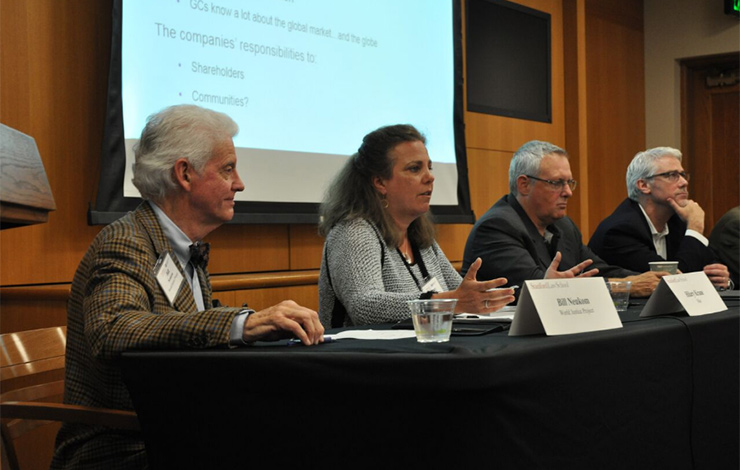
 On May 6-7, 2016, a distinguished group of leading academics and experts joined the World Justice Project for a two-day conference at Stanford Law School. The themes of the conference were organized around four components: an examination of the origins of the rule of law; a look at the “rule of non-law” for development and security in poor countries today; a discussion of the issues of non-state armed actors, vigilantism, and violence; and finally, a discussion of the empirical of measuring and analyzing the rule of law.
On May 6-7, 2016, a distinguished group of leading academics and experts joined the World Justice Project for a two-day conference at Stanford Law School. The themes of the conference were organized around four components: an examination of the origins of the rule of law; a look at the “rule of non-law” for development and security in poor countries today; a discussion of the issues of non-state armed actors, vigilantism, and violence; and finally, a discussion of the empirical of measuring and analyzing the rule of law.
In addition to the presentation and discussion of research papers, the general counsel of Facebook, Google, Apple, and Nike joined WJP founder Bill Neukom for a frank discussion of the challenges of operating multi-national corporations across vastly different rule of law landscapes.
Sessions from the conference are now available on World Justice Project's YouTube channel:
Visit our conference page for additional information and conference materials.






